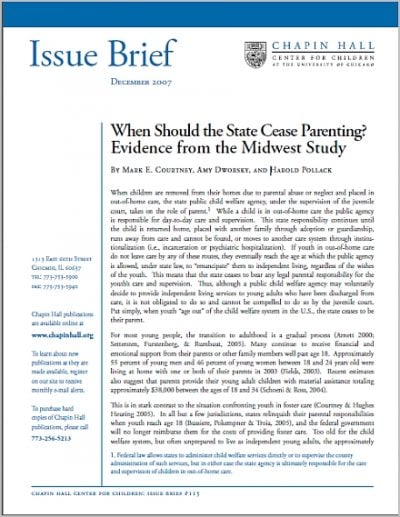Lacking Education
Research suggests that foster youth approach the transition to adulthood with significant educational deficits.

This issue brief presents limited evidence for extending the age for federal foster care reimbursement to states from 18 to 21. The study taps research from three Midwest states. What’s the benefit to kids? Increased success in higher education; increased earnings; and, delayed pregnancy, giving them a better chance at adulthood.
For most young people, growing up and moving out is a gradual process as mom and pop continue to dole out financial and emotional support. In 2003, parents provided material assistance totaling approximately $38,000 for their kids from age 18 to 34. In rough contrast, 24,000 kids in foster care got abruptly booted from any material assistance at age 18. And the research shows many “aged out” foster kids land on the street at some point in time with nowhere to go for help.
We hope you'll find value in this report. We’d love to get a little information from you, which we'll use to notify you about relevant new resources.